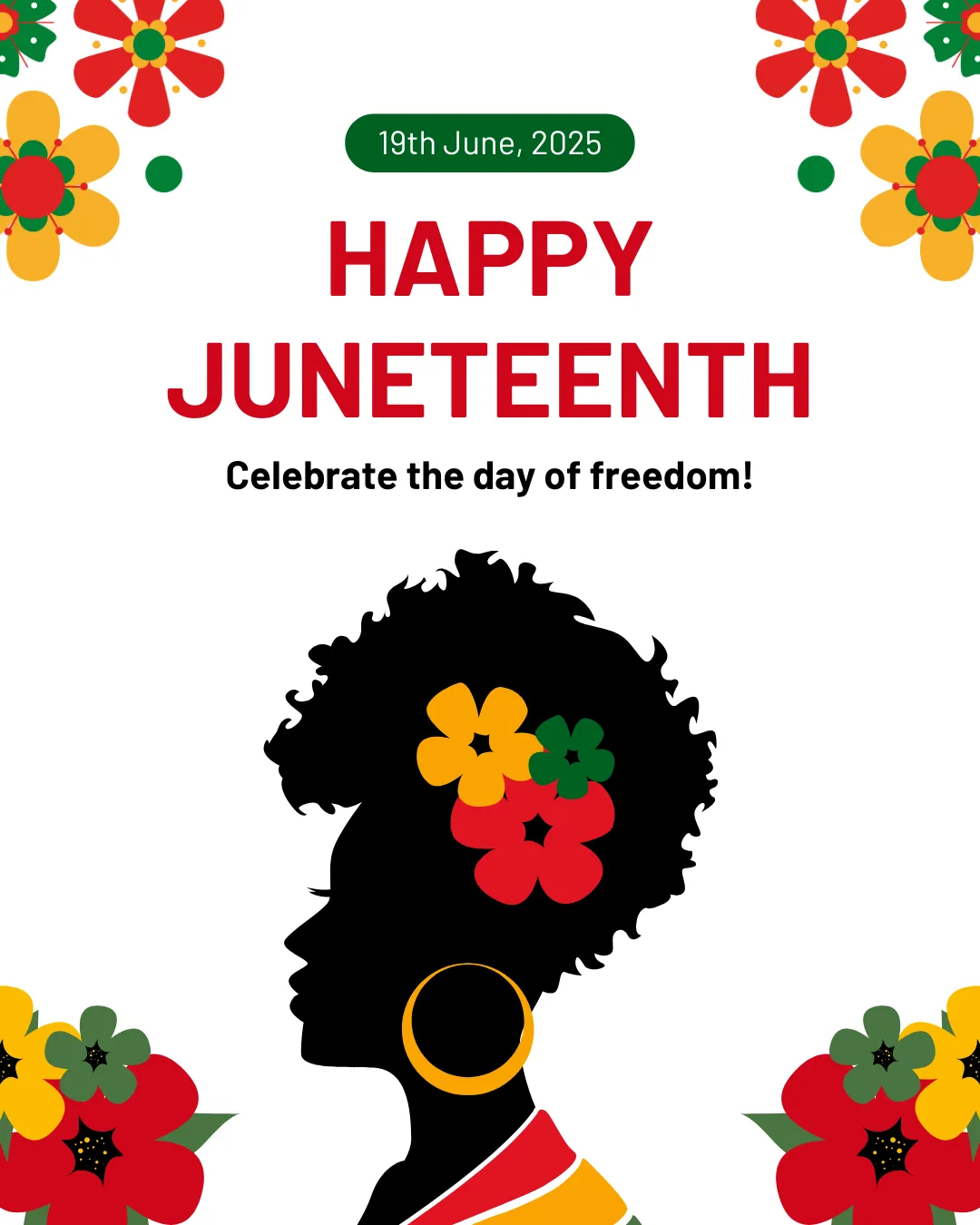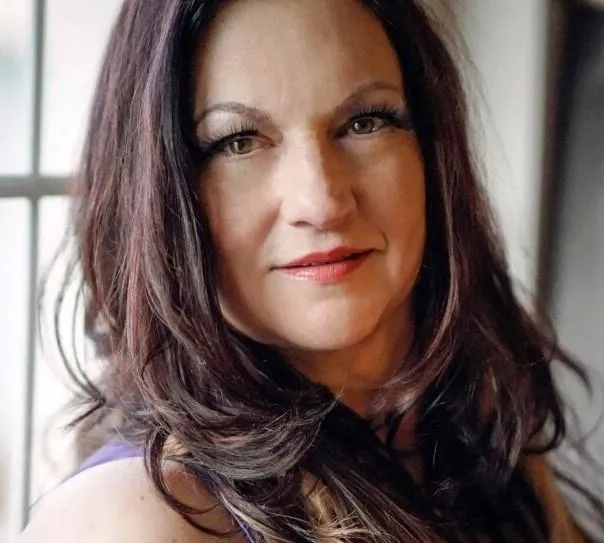Blog

Juneteenth: Honoring Freedom, Resilience, and the Ongoing Journey Toward Equality
Juneteenth: Honoring Freedom, Resilience, and the Ongoing Journey Toward Equality
When we think of freedom in the United States, July 4th often comes to mind. But for millions of African Americans, true freedom didn’t begin until June 19, 1865 — the day that enslaved people in Texas were finally informed of their emancipation, more than two years after the Emancipation Proclamation was signed. This day, known as Juneteenth, is more than a celebration of liberty; it is a powerful reminder of resilience, justice delayed, and the ongoing journey toward equality.
A Delayed Freedom
On January 1, 1863, President Abraham Lincoln issued the Emancipation Proclamation, declaring that all enslaved people in Confederate states "shall be then, thenceforward, and forever free." However, due to the Civil War and the limited presence of Union troops in the southernmost regions, this declaration had little immediate impact in many areas — particularly Texas, which was geographically isolated and had become a stronghold for slaveholders.
It wasn’t until June 19, 1865, that Union General Gordon Granger arrived in Galveston, Texas, with approximately 2,000 federal troops to enforce the emancipation. He delivered General Order No. 3, which stated:
“The people of Texas are informed that, in accordance with a proclamation from the Executive of the United States, all slaves are free.”
This moment marked the official end of slavery in Texas and symbolized the final enforcement of emancipation in the United States.
The First Juneteenth Celebrations

The following year, on June 19, 1866, the first Juneteenth celebrations took place in Texas. These early observances were community-driven, deeply spiritual, and often centered around prayer services, family gatherings, and communal meals. Churches played a pivotal role in organizing events, and former slaves often wore their finest clothing — a powerful act of reclaiming dignity after being denied basic humanity.
Over time, Juneteenth celebrations evolved to include parades, storytelling, music, and the reading of the Emancipation Proclamation. Red foods and drinks, such as red velvet cake, watermelon, and hibiscus tea, became traditional, symbolizing resilience, sacrifice, and the bloodshed of ancestors in pursuit of freedom.
Suppression and Resilience

Despite the joy and hope associated with Juneteenth, it has not always been celebrated widely. During the Jim Crow era, the suppression of Black culture and history meant that many Juneteenth events were pushed out of public spaces. Economic hardship also forced many Black families to work on June 19, limiting opportunities to gather.
Yet, through all the barriers, the tradition endured. African American communities held onto the memory and meaning of Juneteenth, passing it down through generations with pride. In the face of erasure and resistance, the celebration became an act of quiet rebellion and cultural preservation.
A National Recognition
In recent years, growing awareness of racial injustice has brought renewed attention to Juneteenth. The deaths of George Floyd, Breonna Taylor, and many others sparked a global movement in 2020, prompting individuals and institutions alike to confront systemic racism and elevate historically marginalized narratives.
In a landmark decision, Juneteenth became a federal holiday on June 17, 2021, when President Joe Biden signed the Juneteenth National Independence Day Act into law. This recognition affirms the significance of the day, but it also invites deeper reflection: What does freedom truly mean? How do we honor it, protect it, and extend it to all?
Why Juneteenth Still Matters
Juneteenth is not just about the past. It is about truth-telling, acknowledging painful history, and empowering future generations. It invites all Americans to reflect on the legacy of slavery and the continued fight for racial justice.
It’s also a call to action — to listen, learn, and uplift Black voices. As we honor Juneteenth, we honor the strength and resilience of those who survived slavery, rebuilt their lives, and contributed richly to the culture, economy, and spirit of this country.
For those of us who work in empowerment — whether through photography, coaching, activism, or education — Juneteenth is a reminder of how powerful it is when people reclaim their identity, their voice, and their story. It’s a day to reflect not only on how far we’ve come, but also on how far we still must go.
Celebrating Juneteenth Today

Modern Juneteenth celebrations are vibrant, inclusive, and diverse. You’ll find festivals, art shows, musical performances, history tours, and community service projects happening across the country. Schools are incorporating Juneteenth into their curricula, businesses are recognizing the holiday, and families are gathering to share stories and pass on traditions.
But it’s not just about celebration. It’s about education, dialogue, and healing. Whether you’re attending a public event or learning privately, Juneteenth offers a meaningful opportunity to grow in understanding and solidarity.
Standing Strong for Diversity and Inclusion

(Patrons gather to enjoy live music at the 2024 517 Juneteenth Festival in REO Town. Courtesy Ourspace Foundation )
As we honor Juneteenth, we must also remain vigilant in the face of ongoing efforts to erase or undermine the principles of diversity, equity, and inclusion. History teaches us that freedom, once won, must still be defended. Across the nation, we see movements attempting to silence truthful conversations about race, restrict inclusive education, and dismantle programs that uplift marginalized communities. But we must not allow this. The beauty and strength of this nation lie in its rich tapestry of cultures, voices, and experiences. To celebrate Juneteenth is to commit ourselves to the fight for a more just, inclusive, and compassionate future — one where all people are seen, heard, and valued. Now more than ever, we must stay strong, speak boldly, and continue creating spaces where every person has the opportunity to thrive.
Let us honor those who waited far too long to hear the words: "You are free."
“Love yourself first so you know what you deserve”
-UNKNOWN
KRISLEEN JONES
CEO & Owner Of
Photography By Krisleen
Phone: (719)310-8058

Contact
KRISLEEN JONES
CEO & Owner Of
Photography By Krisleen
Phone: (719)310-8058



